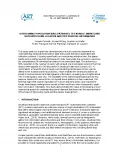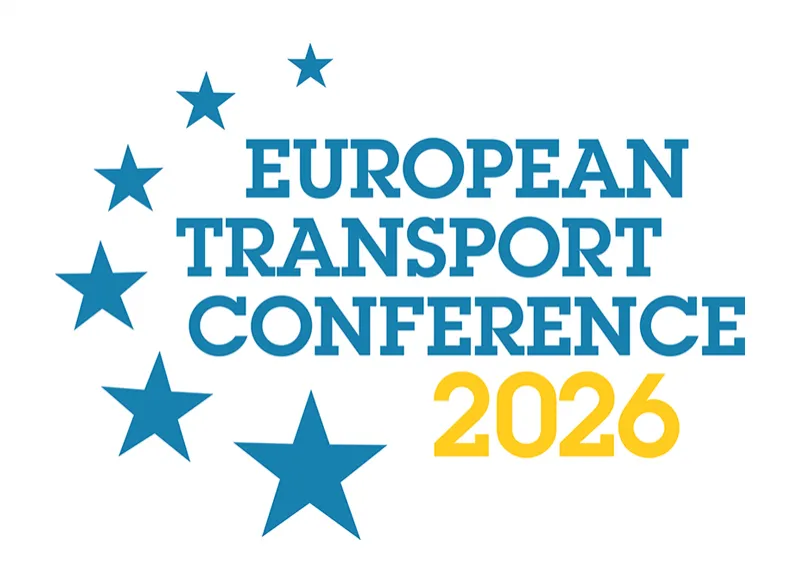-
Past ETC Papers

Browse, search and view papers from the past AET Conferences.
-
Members' Area

AET promotes networking and exchange of ideas, information and opportunities amongst members.
Conference Papers 2024
Antwerp, Belgium
ETC Conference Papers 2024
Overcoming Population Bias: Heuristic Pathways to Enhance Smartcard Data with Home Location and Trip Purpose Information
Seminar
Day 1 (18 Sep 2024), Session 2, Passive data analysis (GPS, Smartcard), 14:00 - 15:30
Status
Accepted, documents submitted
Submitted by / Abstract owner
Joseph Fenwick
Authors
Joseph Fenwick, Transport for London (presenter)
Howard Wong, Transport for London, University College London
Sophie Levi Kallin, Transport for London
Short abstract
We propose a framework to infer incomplete trip records and trip purposes in multi-modal public transport smartcard data. Improvements in processing capability and population representation are reported when applied to a complex case study in London.
Abstract
Smartcard transaction data from public transport (PT) automated fare collection (AFC) systems represents an extensive source of origin-destination information offering deep insights into travel behaviour and PT demand. However, it does not contain any socioeconomic or trip purpose information. As a result, there is a wealth of information regarding when and where trips are being made, but little determined about who is making these trips and why. By studying the trip chains of individual cardholders, it is possible to reveal patterns of activity that enable the inference of home locations and other activity types and, subsequently, trip purposes.
Complete boarding and alighting information for every trip is necessary to detect activities that occur between trips. Thus, most previous work in this area has been limited to the inference of primary purposes (home, work, and school) from small subsets of cleaned, consistent trip records. However, if some types of trips are systemically removed in data processing, particular populations prone to make these trips are consequently disregarded. Hence, this work develops major pre-processing steps that enable the inference of incomplete bus, multi-modal, and multi-stage trip records, improving population representation in smartcard data. Ultimately, this study builds upon a mobility data justice framework to develop more inclusive processing pathways to infer unknown trip records, home locations, and trip purpose in smartcard data.
Firstly, a heuristic algorithm based on spatiotemporal parameters is employed to infer information from adjacent trips of the same smartcard for trip legs (unimodal stages of trips) containing any incomplete information. Then, a second spatiotemporal heuristic algorithm is used to link together individual legs of multi-leg trips. In the final pre-processing step, a clustering of stops is applied, given the likelihood that over time people will use an array of stops near their activity locations. For each card, a chain of activities is then detected on a rolling basis, which can subsequently be used to detect the dominant location-functions for each stop cluster and card, e.g., home, work, etc. Cards are assigned a unique set of location-functions which are then joined to the complete trip records to determine the purpose of each trip.
The method is applied to a 28-day period of AFC smartcard data from 2023 in London that has over 100 million trips covering 15 million individual smartcards. The boarding and alighting inference results in a 98% reduction in the number of cards with ≥ 1 incomplete trip record in the smartcard data. This leads to an additional 13.5 million complete bus and multi-modal trips that can be included in the input data to the activities inference model. Trip purpose inference for primary activities is very comparable against the household travel survey in London. The activity inference step also demonstrates high potential to detect more nuanced and complex activity types such as overnight working. Despite its exploratory nature, a thematic analysis confirms that passengers travelling to work at night typically experience more convoluted journeys and live in more deprived areas. Thus, this study inevitably questions what and who transit systems are planned for, and why different passengers have different mobility experiences. For transit and city planning authorities, this, in turn, emphasises how building towards a framework of mobility data justice (Behrendt & Sheller, 2023) is a critical foundation for the development of more just and inclusive public transit that functions effectively, conveniently and safely for all passengers.
Such granular, trip level data can be used across the transport sector to recentre the mobilities and experiences of previously poorly understood passenger groups, for example those who travel to work at night. Trip purpose information can also inform fare setting policies, closure planning strategies, station staffing models and enable better directed communications and marketing. Future work of this study will be to develop more dynamic heuristic steps to further disaggregate the trip purposes beyond primary activities, e.g., shift-work, flex-work, secondary / tertiary education, etc. Ultimately, this paper sets out how a mobility data justice framework must be at the centre of the design and development of more inclusive transit systems.
Programme committee
Data
Topic
Transport planning analysis and models
Documents:


Association For
European Transport
Forester House
Doctors Lane
Henley-in-Arden
Warwickshire, UK
B95 5AW
+44 (0) 15 64 793552
VAT number: 710 1866 64
Conference Supporters & Endorsers




Legal Entity
The Association for European Transport is registered as an Association ('vereniging') with the Chamber of Commerce for Haaglanden in The Netherlands under company number 27170096.
Built on Zenario




